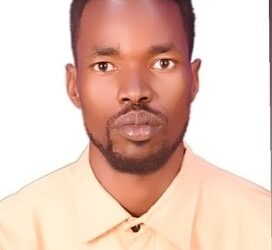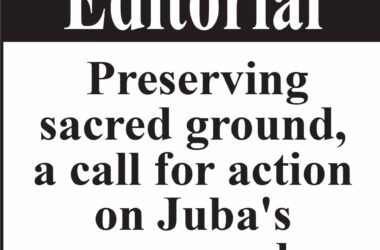By Isaac Chol Aguer
There are mornings when a nation ought to look itself in the mirror and ask: What have we allowed ourselves to become?
This Monday is one of them.
In the past seven days alone, South Sudan witnessed tragedies that should shake any heart still capable of feeling.
A 16-year-old girl was attacked by a gang in the streets of Juba, her life forever marked by violence in a city meant to protect her. And just three days later, a man jumped from an unfinished building in Jebel Suk, driven not by madness, but by hunger and despair.
Two stories. Two tragedies. But they belong to one nation.
This is not bad luck. It is a reflection of what happens when a people forget those who carried them. When we stop hearing the quiet suffering beneath the noise of politics and meetings. When, in the rush of daily business, we forget the promise that built this country.
I remember, like many others, the stories of how this land was won. How men and women walked barefoot through forests and deserts, surviving on leaves and dirty water, believing in a dawn where no child would sleep hungry and no woman would beg for safety.
That was the dream.
And yet, today, we pass mothers begging outside government gates. Boys sleep in the dust near roads meant to carry their hopes. In this very city where freedom was declared, despair now speaks in whispers — and no one seems to listen.
This isn’t about rich versus poor. It’s not about power or positions. It’s about people.
We are one country. One history. And the men and women leading today were once children of hunger, hardship, and unbroken faith.
That is why, even now, I believe there remains a conscience in those halls of power — a memory not yet erased by time or comfort. A voice inside that remembers the pain of empty plates and the promise of a better dawn.
This is not a cry for miracles. It is a plea for recognition. To see what is happening around us.
To acknowledge it honestly. And to act in whatever way possible to ease it.
Because every hungry child rescued is a small act of victory. Every family shielded from despair is a step toward healing. Every act of dignity extended is a return to who we are supposed to be. We do not write these words in anger. We write them as sons and daughters of this soil — to remind ourselves, and those with the power to act, that a nation without mercy for its own is a nation in danger of forgetting itself.
The week ahead will bring meetings, decisions, announcements. Let one of those decisions be to remember the people. South Sudan still holds a future. But we must not forget its soul.




